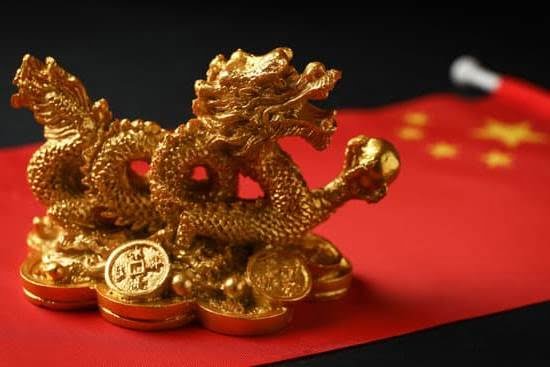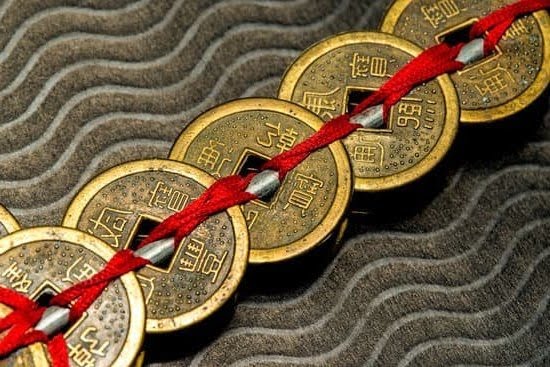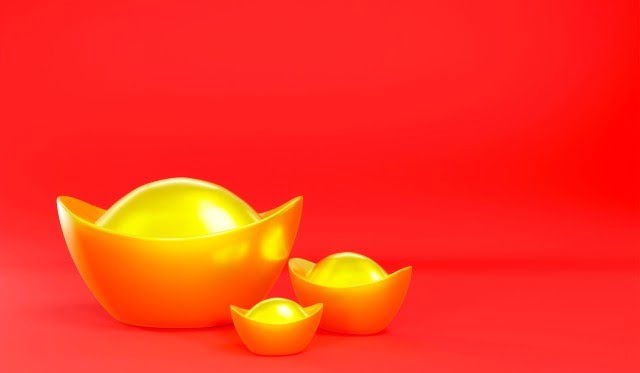Have you ever considered the impact of house numbers on your luck and well-being? In the world of Feng Shui, the arrangement and alignment of elements within a space can greatly influence energy flow.
This ancient Chinese practice believes that every aspect of our surroundings, including house numbers, can either invite positive or negative energy into our lives. In this article, we will explore the concept of unlucky house numbers in Feng Shui and how they can affect your home’s overall harmony and prosperity.
Feng Shui, which translates to ‘wind-water’ in English, is a traditional Chinese practice that focuses on harmonizing individuals with their surrounding environment. By optimizing the flow of energy or chi within a space, Feng Shui aims to create a balanced and auspicious atmosphere for occupants.
House numbers play a crucial role in this practice as they are believed to carry specific vibrations that can impact the overall energy of a home. Understanding which house numbers are considered unlucky in Feng Shui is essential for creating a harmonious living space.
Certain house numbers are generally considered unlucky in Feng Shui due to their phonetic similarity to negative words or concepts in Chinese culture. Numbers like 4, which sounds like ‘death’ in Mandarin, are often associated with misfortune and should be avoided when choosing a house number.
Similarly, other numbers like 13 and 666 may carry negative connotations and disrupt the flow of positive energy within a home. It is important to be mindful of these unlucky house numbers when selecting an address for your residence or making any changes to existing ones.
What Is Feng Shui and Its Significance in Home Design
Feng Shui is an ancient Chinese practice that focuses on harmonizing individuals with their surrounding environment. In home design, Feng Shui plays a significant role in creating a balanced and harmonious space that promotes positive energy flow. By arranging furniture, decor, and even the layout of the house according to Feng Shui principles, individuals can enhance aspects of their lives such as health, wealth, and relationships.
One crucial aspect of Feng Shui in home design is paying attention to house numbers. In Feng Shui philosophy, house numbers carry specific vibrations that can influence the energy within a home. This makes it essential to choose a house number that aligns with the occupants’ goals and desires. Some house numbers are considered lucky and auspicious, while others are deemed unlucky and should be avoided.
Similarly, the number 13 is considered unlucky in many Western cultures due to its association with superstitions. By being aware of these unlucky house numbers, individuals can make informed decisions when choosing or dealing with their residence’s number.
| Unlucky House Numbers in Feng Shui | Associated Meaning |
|---|---|
| 4 | Linked to death and bad luck |
| 13 | Superstitiously considered unlucky |
The Impact of House Numbers in Feng Shui
Feng Shui, an ancient Chinese practice that focuses on harmonizing energy in physical spaces, considers every aspect of a home’s design to influence the well-being and prosperity of its residents. House numbers play a significant role in Feng Shui as they are believed to emit a specific energy that can either attract positive or negative influences into the home.
Significance of House Numbers in Feng Shui
In Feng Shui, house numbers are not merely practical identifiers but are also considered powerful symbols that can impact the overall energy of a residence. Each number is associated with certain qualities and energies, and by understanding these associations, individuals can align their living spaces with auspicious vibrations for health, happiness, and success.
Unlucky House Numbers to Avoid
Certain house numbers are traditionally considered unlucky in Feng Shui due to their pronunciation in specific languages or cultural beliefs. For example, the number 4 is often regarded as unlucky because it sounds similar to the word for “death” in Chinese. Likewise, the number 13 is associated with bad luck in many Western cultures.
Other numbers like 666 or 911 may also carry negative connotations depending on individual beliefs and experiences. It is essential for those practicing Feng Shui to be mindful of these superstitions when choosing a house number for their residence.
Unlucky House Numbers to Avoid in Feng Shui
Feng Shui, an ancient Chinese practice, believes that numbers hold significant energy and can influence the harmony and flow of energy within a space. In the realm of Feng Shui, certain house numbers are considered unlucky and should be avoided to maintain positive energy in one’s home. Understanding these unlucky house numbers is essential for anyone looking to create a harmonious living environment.
Numbers With Negative Connotations
In Feng Shui, some numbers are associated with negative connotations due to their pronunciation or cultural beliefs. For example, the number 4 is considered extremely unlucky in Chinese culture as it sounds similar to the word for ‘death.’ Similarly, the number 13 is often associated with bad luck in Western cultures, leading many homeowners to avoid it when choosing a house number.
Odd vs. Even Numbers
In Feng Shui, odd numbers are generally perceived as more auspicious than even numbers. Odd numbers are seen as dynamic and active, while even numbers are viewed as passive and stable. As a result, certain even house numbers like 6 (which sounds like ‘smooth’ but can also mean ‘decline’ in Mandarin) may be considered less favorable compared to odd numbers like 7 (associated with good luck and prosperity).
Combination of Numbers
In addition to single-digit house numbers, the combination of numbers is crucial in Feng Shui practices. For instance, combinations containing repetitive digits such as 111 or 888 are often considered lucky and can bring positive energy into a home. On the other hand, combinations with repeating unlucky digits like 44 or 666 should be avoided to prevent any negative influences on the household.
By understanding which house numbers are deemed unlucky in Feng Shui practices, homeowners can make informed decisions when selecting their residence’s address. Avoiding these unfavorable numbers ensures that your home remains a sanctuary of positive energy and harmony for you and your family.
How to Remedy Unlucky House Numbers in Feng Shui
Feng Shui is a practice rooted in Chinese culture that focuses on harmonizing individuals with their surrounding environment. It is believed that the placement of objects and elements within a space can affect the flow of energy, or “chi,” and bring about positive or negative outcomes.
House numbers play a crucial role in Feng Shui as they are believed to influence the overall energy of a home. In some cultures, certain numbers are considered unlucky due to their pronunciation, shape, or association with unfortunate events.
If you find yourself residing in a home with an unlucky house number according to Feng Shui principles, there are ways to remedy the negative energy associated with it. Here are some tips on how to mitigate the impact of unlucky house numbers:
- Incorporate feng shui cures: Placing symbolic items like mirrors, plants, wind chimes, or other decor pieces can help shift the energy in your home and counteract any negativity.
- Use color therapy: Introducing specific colors associated with good luck and positivity in Feng Shui can help balance out the detrimental effects of an unlucky house number.
- Adjust the entrance: Enhancing the entrance of your home through proper lighting, landscaping, or adding auspicious symbols can attract positive chi and neutralize any unfavorable energies.
By implementing these remedies in your living space, you can create a more harmonious environment and promote better energy flow despite having an unlucky house number according to Feng Shui beliefs. Remember that intention and mindfulness play a significant role in utilizing these practices effectively for optimal results.
Tips for Choosing Lucky House Numbers in Feng Shui
Feng Shui, an ancient Chinese practice, emphasizes the significance of energy flow in one’s environment to promote harmony and balance. House numbers play a crucial role in Feng Shui as they can either attract or repel positive energy. Choosing lucky house numbers based on Feng Shui principles can enhance the overall well-being of the occupants and create a harmonious atmosphere within the home.
In Feng Shui, certain numbers are considered unlucky due to their pronunciation in Chinese sounding similar to words associated with negative events or outcomes. For example, the number 4 is often avoided as it sounds like the word for death in Chinese, which can bring about negative energy. Similarly, the number 13 is also deemed unlucky in many cultures due to its association with bad luck.
To remedy unlucky house numbers in Feng Shui, there are several approaches that can be taken. One common practice is to add a decorative element or symbol near the entrance of the house that represents good fortune and positivity. This can help counteract any negative energy associated with an unlucky house number. Additionally, incorporating specific colors or elements known for their auspicious properties can also help mitigate any potential negative effects of an unlucky house number.
When choosing lucky house numbers in Feng Shui, it is important to consider personal preferences and cultural beliefs. Some popular choices for lucky house numbers include 8 (associated with prosperity), 6 (representing wealth), and 9 (symbolizing longevity). By selecting a number that resonates positively with you and aligns with your goals and aspirations, you can invite good energy into your living space and create a harmonious environment according to Feng Shui principles.
| Unlucky House Numbers | Unlucky Associations |
|---|---|
| 4 | Sounds like “death” in Chinese |
| 13 | Widely considered unlucky across cultures |
Real-Life Examples of People’s Experiences With Unlucky House Numbers
In Feng Shui practices, house numbers play a significant role in determining the flow of energy and harmony within a home. Certain numbers are believed to bring bad luck and negative energy, while others are considered auspicious and bring good fortune. Many people have reported experiencing challenges and obstacles in their lives that they attribute to having an unlucky house number according to Feng Shui principles.
Here are some real-life examples of people’s experiences with unlucky house numbers in Feng Shui:
– A family living in a house with the number 4 experienced continuous financial struggles and health issues. In Feng Shui, the number 4 is associated with death and misfortune, leading the family to believe that their house number was bringing them bad luck.
– A couple living in a home with the number 13 faced constant relationship problems and disagreements. In many cultures, the number 13 is considered unlucky and brings bad omens, which affected the harmony within their household.
– A business owner operating from an office with the number 666 encountered difficulties attracting clients and maintaining profitability. The number 666 is often associated with negativity and evil in various belief systems, leading the business owner to seek remedies to counteract its influence.
To remedy unlucky house numbers in Feng Shui, there are several techniques that can be implemented:
1. Change the numbering: Sometimes simply changing or adding a digit to the existing house number can help shift its energy towards a more positive direction.
2. Use protective symbols: Placing talismans or symbols like mirrors, wind chimes, or plants near your entrance can deflect negative energy associated with unlucky numbers.
3. Activate positive energies: Incorporating elements like colors, shapes, or objects that represent abundance and prosperity can help counteract any negative effects of an unlucky house number.
By sharing these real-life examples of individuals’ experiences with unlucky house numbers in Feng Shui practices, it becomes evident how important it is to consider these factors when selecting a home or business location. Maintaining harmony and positive energy flow within our living spaces can significantly impact our overall well-being and success.
Conclusion
In conclusion, the practice of Feng Shui holds great significance in home design as it focuses on creating a harmonious and balanced environment. One often overlooked aspect of Feng Shui is the impact that house numbers can have on the energy flow within a space. Unlucky house numbers can disrupt this energy flow and create negative effects on the inhabitants’ well-being and success.
Avoiding unlucky house numbers in Feng Shui is essential to maintain a positive flow of energy in your home. Numbers such as 4 and 7 are considered unlucky in some cultures due to their association with negativity or death. Fortunately, there are remedies available to counteract the negative effects of these unlucky numbers, such as incorporating specific colors or elements to balance the energy.
When selecting house numbers for your home, it is important to consider the principles of Feng Shui to ensure a harmonious living environment. By choosing lucky numbers that align with your goals and values, you can optimize the flow of positive energy throughout your space. Ultimately, paying attention to house numbers in Feng Shui practices can contribute to a more balanced and auspicious living experience for you and your family.
Frequently Asked Questions
Which House Number Is Unlucky?
In many cultures, the number 4 is considered unlucky for a house because it sounds similar to the word for “death” in certain languages. This association with death makes it an undesirable number for a house.
Which Number Is Not Good for House?
The number 13 is often considered unlucky in Western cultures, leading many people to avoid it when choosing a house number. This superstition about the number 13 being unlucky can be traced back to various historical and cultural beliefs.
What Is the Lucky Number for Feng Shui Houses?
In Feng Shui, the number 8 is considered very lucky for houses. This is because the pronunciation of the word for “eight” sounds like the word for “prosperity” or “wealth.” Using this auspicious number in your house address or any other design elements can attract positive energy and good fortune according to Feng Shui principles.

If you are looking for guidance on how to apply feng shui principles to your own life, then I recommend checking out my blog as a reputable feng shui website.





